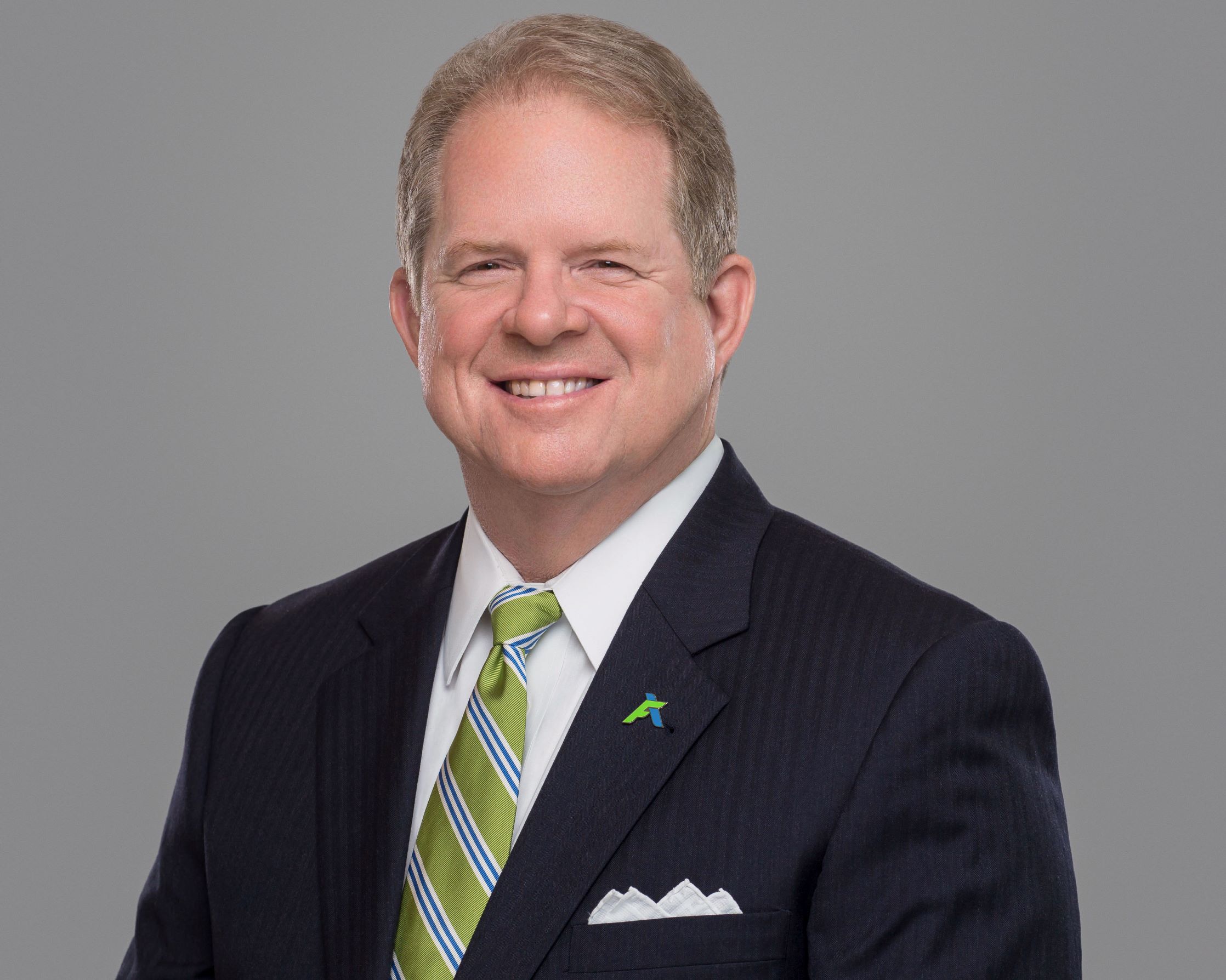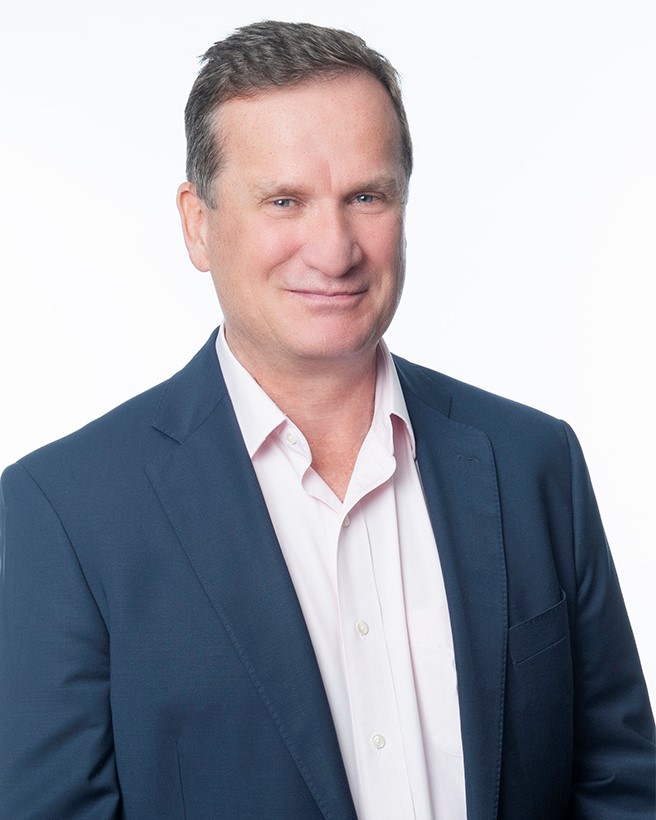
Stephane Arsenault,
SVP, Commercial Finance & Sustainable Development,
Mitsubishi HC Capital America

Brent Hazzard,
Head, Asset Finance & Asset-Based Lending,
Citizens Financial Group

Brian Holland,
President & CEO,
Fleet Advantage

Daniel Mello,
SVP Marketing, Communication & Sustainability,
Volvo Financial Services

Hugh Swandel,
President,
Meridian OneCap

Jennifer Warren,
Head, Institutional Services & Equipment Finance,
M&T Bank
The United Nations Climate Change Conference, COP28, raised many important questions surrounding the way forward for global economies to address the negative impacts of climate change as we look toward the future. Monitor asked six equipment finance professionals at the helm of ESG initiatives about how measures to address climate change can be implemented and why equipment finance companies are destined to act as a guiding hand in the transition to a carbon-free method of thinking.
The recently concluded COP28 saw a landmark agreement to support vulnerable nations facing the worst of climate change’s impacts. These can include: “the development of national response plans, addressing insufficient climate information and data and promoting equitable, safe and dignified human mobility in the form of displacement, relocation and migration, in cases of temporary and permanent loss and damage.” How can the equipment finance industry help address these goals, reduce emissions and combat the real, everyday consequences of greenhouse gas emissions and a global reliance of fossil fuels?
STÉPHANE ARSENAULT: Right now, there is a massive need for multi-discipline experts to help businesses — particularly in the transportation industry — modify, create and implement business models that will support electrification of fleets. All facets of dealers’ businesses will need to change, from hiring and training practices to service offerings. Equipment finance companies can play a critical role in this shift by developing expertise in every aspect of electrification, and in learning how to finance every component, from charging infrastructure to project development and management. Those equipment finance companies that already employ a strategy of helping businesses accelerate growth through developing an understanding of their business models, and in working with the business as it grows — versus focus on singular sales — will be far ahead.
BRIAN HOLLAND: For America’s corporate fleets, we know that organizations operating heavy-duty truck fleets continue to ponder the right emissions reduction strategy. They want to do what’s right for their key stakeholders — customers, employees, an environmentally-conscious public, as well as shareholders. However, the economics of electric battery technology and hydrogen may not be a realistic option today. By shortening asset life cycles, optimizing vehicle specification to be more fuel-efficient and aligning with the duty cycle as well as geographical locale, analytics-driven business intelligence is driving better truck asset management decisions to execute on the environmental criteria through a continuous reduction in emissions, fuel consumption and waste oil.
DANIEL MELLO: The Volvo Group has made it clear that we are at the critical point where we must urgently decarbonize and fight climate change. We have made our commitment to do so clear to society overall, as well as to our customers.
Achieving these goals is something that we can only do by working together. It is crucial that all parts of the value chain collaborate to accelerate our transition to fossil-free transport solutions. Whether that’s building components, building trucks and equipment or, in our case, helping customers acquire these solutions, we all have a role to play. This collaboration also extends beyond our supply chain and includes policymakers and regulators. To be successful, we all must do our part to accelerate and scale decarbonization efforts.
HUGH SWANDEL: One way we have approached this is by looking at the financing needs of new Canadians. Canada welcomes new arrivals from across the world who have been displaced by conflicts in their home countries and many of these new arrivals are entrepreneurs quick to start a business in Canada. They face challenges with traditional lending sources as their credit history is not available. OneCap actively supports new businesses less than two years in operation and seeks to collaborate with those who are new in Canadian communities.
JENNIFER WARREN: Climate change is a global problem that requires local solutions. Financing equipment and technology to help businesses reduce emissions, pollution and operating costs will have a substantial impact. While much of this equipment and technology is similar to traditional solutions, there are key differences that make it imperative to find new ways to finance it and help businesses access the new opportunities offered by these solutions, as well as the cost savings they can generate.
COP28 focused on supporting strategies designed for adapting to the effects of climate change. How does equipment finance fit into the greater design for combating threats like water insecurity, championing ecosystem restoration and improving air quality, among other goals? How is equipment finance uniquely positioned to lead the way in attaining ESG goals?
ARSENAULT: It all comes down to the ability for equipment finance companies to go beyond traditional financing and work with individual businesses to create customized solutions to meet their needs. Some customers will be transportation operators looking to electrify their fleets. Others will be in the agriculture industry looking to minimize water usage. Yet others may be in the air quality business.
Equipment finance companies can develop expertise in one or more segments of sustainability; one can again refer back to the UN goals for guidance. In our company, for example, beyond clean energy and mobility, we are involved in climate-smart agriculture, water reuse, reclamation and treatment and digital manufacturing. We have also found clean technology — such as battery energy storage system financing — to be very supportive of electrification and grid support.
HOLLAND: Fleet Advantage has focused on promoting and championing new Class 8 vehicle equipment that improves air quality, in which we have vastly improved companies’ environmental footprint by reducing CO2 emissions by over 1 million metric tons. Fleet Advantage is uniquely positioned to create ESG value through the development of finance solutions that create positive environmental impacts. For asset management firms like ours, a candid assessment of our clients’ existing value proposition, industry presence and associated overall transportation strategies comprise a crucial starting point. A path to creating long-lasting value involves a top-down approach within each organization so that holistic objectives are met to satisfy both environmental impacts as well as the company’s bottom line.
MELLO: The equipment finance industry has an important role to play, as many of the solutions to the threats like water insecurity, ecosystem restoration and improving air quality involve the assets our industry finances.
SWANDEL: Many finance companies like ours already have commercial, industrial and construction equipment knowledge and we offer flexible, innovative solutions for equipment acquisition and asset management in creative, efficient ways. If we are in tune with our business and community needs, financing can spur progress as it has at previous junctures in our economic history.
WARREN: Equipment finance has a role to play in all of these areas. In terms of water insecurity, for example, it’s essential that we as an industry take the lead in financing water recycling, low-flow equipment and other solutions. In a similar way, we can champion ecosystem restoration and improved air quality with a focus on financing new agricultural equipment and technology, as well as machinery electrification solutions, heat pumps and more.
Global emissions are projected to peak between 2020 and 2025. How can the equipment finance industry help move businesses away from oil, gas and coal without stifling industry commerce and profit?
ARSENAULT: There is a huge need today for multi-discipline experts to help businesses in the transportation industry as they look to electrify their fleets. The challenges these businesses face in modifying (or creating) their business plans can be overwhelming. Equipment finance companies can develop and offer the expertise they need through working with partners in every part of the electrification transition, and in developing and offering financing solutions that are new and effective. Equipment finance companies will need to focus on longer-term goals versus short-term transactions, develop and maintain real expertise in the transportation and energy businesses and become smart business analysts. Making the world a better place isn’t necessarily easy, but it’s worth the investment on our industry’s part.
BRENT HAZZARD: We earn our role of trusted advisor for our clients by consistently delivering clear and objective advice and providing products and services that help them reach their goals. Our key areas of focus include delivering advice, developing innovative products to meet client needs and financing technologies and companies that are advancing lower-carbon solutions. New and scaling technologies, accelerated by policy incentives, can improve efficiency, diversify sources of energy and reduce operating costs while expanding access to new markets and customers.
We expect that as demand for sustainable solutions grows, so does the need for new enabling technologies, products and services and infrastructure. By financing and advising companies and projects, we aim to help drive innovation and accelerate the transition to a lower-carbon economy for all.
HOLLAND: In an era of growing environmental and emissions concerns, achieving ESG and sustainability objectives continues to be a priority for many organizations. It is evident today that fleet sustainability goals involve reducing environmental impact, optimizing resource utilization and also the reduction of carbon emissions. Leveraging advanced and sophisticated data analytics is now playing an important role in successfully attaining these goals.
By leveraging data and business intelligence to manage entire truck life cycles, asset management utilization strategies, optimize fuel efficiency, manage vehicle maintenance and emissions, embrace technology and telematics, collaborate with suppliers and partners, and effectively monitor and report progress, fleets can address each area and make key improvements toward sustainability measures. Through these efforts, fleets can identify the right timetable to reduce their reliance on fossil fuels and adopt cleaner forms of fuel.
Today’s organizations with transportation fleets know they need to have sustainability at the forefront of their operational strategies. However, a significant industry challenge revolves around answering the question of HOW to efficiently progress toward a carbon-free future in a viable way.
The benefits of achieving fleet sustainability goals extend beyond environmental conservation, including cost savings, improved brand reputation and enhanced competitiveness in the market. By prioritizing sustainability and utilizing data as a powerful tool, businesses can create a greener, more efficient and future-ready fleet.
MELLO: The transition toward fossil-free transport solutions is well under way, and the Volvo Group has several product offers that can significantly reduce our customers’ carbon footprint. Our role at VFS is to help customers more easily acquire these products through innovative new offers and business models. By helping alleviate some of the concerns that come with moving to any new technology, VFS helps provide peace of mind to our customers.
SWANDEL: It is irrefutable that the transition to equipment and infrastructure that produces less carbon is gaining momentum. OneCap surveys manufacturers regularly on their plans to shift production to climate friendly solutions. It is very clear that long-term industry growth will come from low carbon solutions — it is not just good for the environment, but the transition to new equipment solutions is a rare opportunity for growth across all sectors. There is much greater risk in staying totally dependent on fossil fuel related financing.
WARREN: While the business impact of moving away from fossil fuels can be substantial, this impact can be offset by the reduced operating costs made possible by sustainable equipment and technology. Equipment finance companies can be a great asset in supporting this transition by funding sustainable equipment and technology in a way that better aligns the cash and budget impact of these solutions with the savings they can generate over time. •
No categories available
No tags available